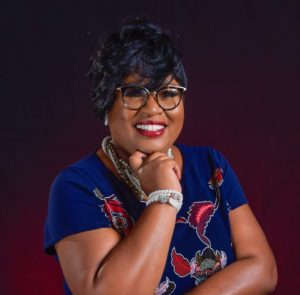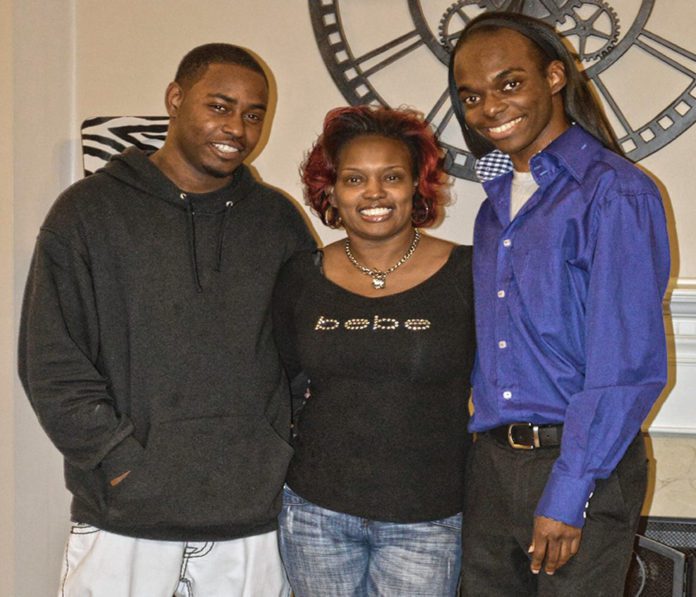For Tremetrius Barnes, National Donor Sabbath is a very special time of the year.
“Everyone, no matter what your religion, is asked to be an organ donor,” said Barnes, recipient of a kidney transplant 22 years ago. “People get a second chance at life because someone in death gave them new life. We hope this November many in the Black community, will consider becoming organ donors.”
National Donor Sabbath this year will be observed Friday through Sunday (Nov. 12-13).
Faith leaders of all denominations and systems of belief are encouraged to talk about organ donation.

“Donating tissue and organs is so critical, especially for people in our community,” said Telisa Franklin, multi-cultural relations coordinator for the Mid-South Transplant Foundation. “I have been fortunate enough to have four family members who have benefited from a transplant.”
African Americans make up the largest group of minorities in need of an organ transplant, according to the U.S. Department of Health and Human Services Office of Minority Health (HSSOMH).
The HSSOMH listed, among other facts, that:
■ The number of organ transplants performed on Blacks in 2020 was 27.7 percent of the number of Blacks currently waiting for a transplant, and the number of transplants performed on whites was 47.6 percent of the number currently waiting.
■ While 28.5 percent of the total candidates currently waiting for transplants are Blacks, they comprised 12.9 percent of organ donors in 2020.
Barnes can remember as early as 3 years old taking special medication and frequent trips back and forth to the doctor.
“Too much protein was being spilled in my urine from a very small child,” said Barnes. “That lasted all the way to adulthood. And one day, I was either 20 or 21, welts began to form all over my body, as if someone had whipped me. That is when I learned my kidney was failing. I went on dialysis.”
Otherwise, Barnes was essentially healthy. The better a person’s health, the better their candidacy for a successful organ transplant.
“I would encourage other people when I came in for dialysis,” said Barnes. “Many were so much sicker than I was, and some had been on the list for a kidney transplant for years. God was very kind to me. I was only listed for about six to nine months before a great match for me was available.”
The donor was a man in Portland, Oregon, who had signed up to donate two kidneys, liver and pancreas.
Barnes said she was not told the age or race of the donor, but she was aware that African-American donors make better matches for African-American patients.
The day of Barnes’ transplant was May, 24, 1999. She is extremely active today and leads a pretty normal life.
“I no longer needed dialysis three times a week, and I thank God for that,” said Barnes. “Organ matches for very sick patients cannot be made unless people consider making that generous gift, in the event of their death. I will always be grateful to the gentleman in Portland, who decided to be an organ donor, whoever he was, whatever his race.”
The disorder Barnes had was hereditary, and her older son, Artavius Veasey, also suffered with kidney failure. When Veasey was a young teen, his own father gave him a kidney. Veasey is now 31.
Barnes’ younger son, Reginald Smith Jr., wanted to be an organ and tissue donor to honor his mother. Barnes had no idea Smith would become an organ donor at age 24.
“My son, Reginald, was in a car accident on June 3, in 2018,” said Barnes. “He was only 24. I told them they could take everything. So, we donated everything he had. In his death, he helped 67 people with donated organs and tissue. What a great legacy, that a part of him lives on in 67 people.”
Franklin said all churches, synagogues, and mosques are being asked to encourage members to take a new look at being an organ and tissue donor.
“Sometimes, people of certain racial or ethnic backgrounds will make the best matches for those sharing the same background. This weekend is a great opportunity to be a lifesaver.”
(To register a decision to be an organ, eye and tissue donor, visit MidSouthTransplant.org. For more information about National Donor Sabbath, visit www.donatelife.net/nds, or call 901-328-4438.)



